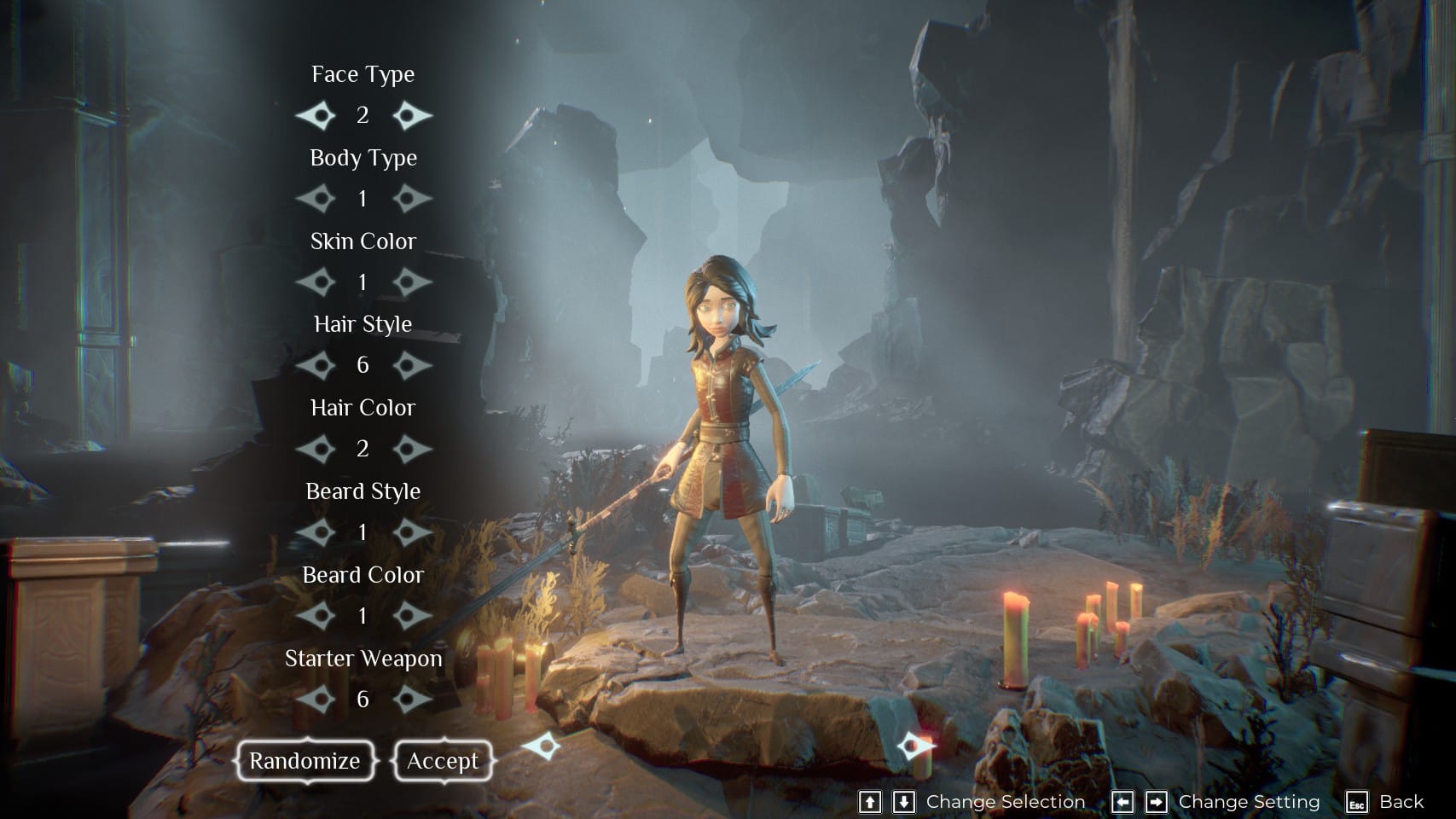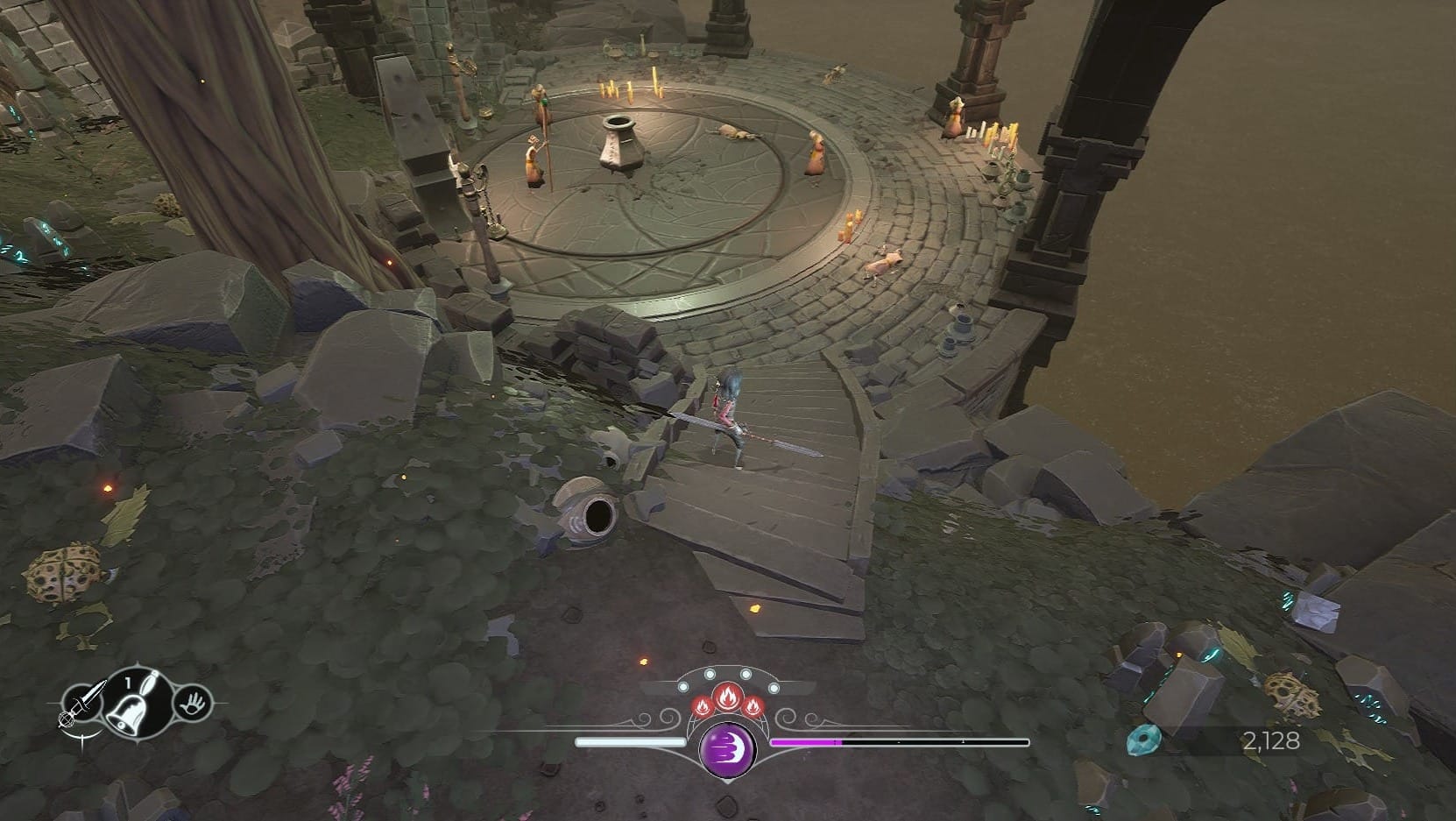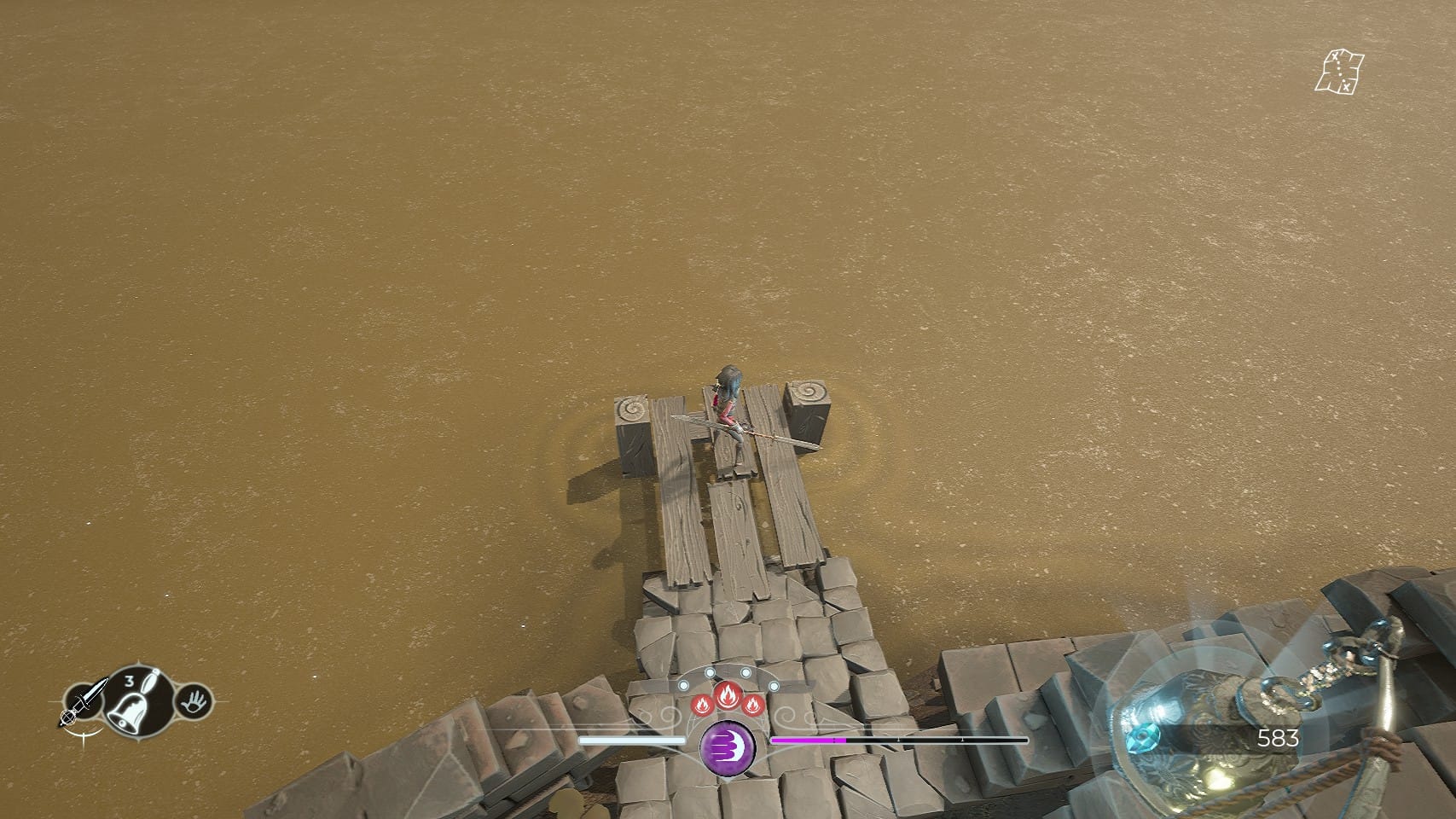Sands of Aura: The Wrath of a Tormented God
Win back your world in this enjoyable indie ARPG

The world of Talamhel has been plunged into an endless night by a tormented god, who in their blinding anger smashed the hourglass of time. The sands of the hourglass flooded the land as a sea, burying civilization in the process. Talamhel fell from its glory and was left corrupted and broken. Those who lived in that world have become violent, undying soldiers of death.
This is Sands of Aura, a Souls-like inspired ARPG dungeon crawler, created by the 12-person studio Chashu Entertainment and released on October 27, 2023. Environments glow with a ghosts-of-the-past effect and reflect the carnage the world of Talamhel went through. There is also an almost Tim Burton-esque design to the game – especially the characters – that I really enjoy. Everything has a dark yet whimsical appearance and feel to the art that immediately drew me into the world.

Upon creating a new game, I was actually surprised to be brought into a character creation interface. Granted, it was made up of presets to keep it simple, but it seems to be a rarity in indie games. The options available offered choices in face type, body type (gender), skin color, hairstyle, hair color, beard style, beard color, and, very surprisingly, starter weapon. Indeed, you are given a plethora of options for the type of melee weapon you would like to begin the game with. If you decide after using it for a while that it isn’t what you want to fight with, don’t fret! You can just as easily switch your weapon type at the forge to try something else for your desired build.
Sands of Aura's progression is item-based and places a high focus on crafting and upgrading your items as it is the only option available to get stronger and improve your combat prowess. Weapons can be crafted, but you may also find spells to learn, or runes and talismans to upgrade your gear. Better gear and better runes lead to higher damage and defenses. There is no experience gained when killing enemies, but they do drop Glint, the in-game currency. Much of what you find in your explorations are items collected for the sole purpose of selling them, but sometimes you’ll find neat upgrades for yourself as well. Many different types of upgrades are possible and the forge offers plenty of things you can create.
With that now-ubiquitous Souls-like tag, many have gone into this game expecting the sort of combat the genre is known for. While the game is difficult, the combat mechanics are not something it shares with the more hardcore entries loved by those fans. Sands of Aura is more the sort that is easy to learn but hard to master, though at times the blocking and dodging feel entirely pointless. You’re going to take damage regardless of your timing, and boss battles sometimes feel needlessly difficult with unavoidable attacks that obliterate your HP. There is no way to lock on to a target, and the direction of your attacks is solely based on the direction you are facing. This is also a game where waiting for an opening to hit your opponent is crucial, and your input for controls even more so. The controls for dodging and blocking are a shared key, and your direction or hesitation can result in you taking a lot of damage.

With that now-ubiquitous Souls-like tag, many have gone into this game expecting the sort of combat the genre is known for. While the game is difficult, the combat mechanics are not something it shares with the more hardcore entries loved by those fans.
When times get tough and your HP bar reflects it, you can ring the Testament Bell to heal yourself. You only get a few of these before they need to be replenished by ringing one of the big Resonance Bells found throughout the world of Talamhel. These act as checkpoints, restore your health, and can be used as a fast-travel space, but of course, they also respawn all of the monsters in all of Talamhel (except for bosses).
So remember, if you run out of bells and find your HP is running low, choosing to heal means you'll have to fight through all of those monsters all over again. If you die you lose all of your Glint, though I guess if you're going to fight them all again, you'll at least break even.
Traveling the world of Talamhel is done through a fancy boat that has been fashioned to maneuver in a sea of sand – resist the urge to jump into the sand, trust me – to get from region to region, crawl different dungeons, and assist other settlements.

The camera is locked in a top-down view that you can fully rotate, but you cannot zoom in or out, you can only tilt it slightly up or down. That view can sometimes work to your benefit in the midst of a fight, as it gives you a good view of your immediate surroundings which can help when fighting mobs, but it fails when you need to see what lies ahead of you. Sometimes it has the feel of running blind, and you may even find yourself running straight into an ambush because of it.
While I'd assume the camera mechanics were an overall design choice, perhaps for aesthetic value, and that this style is typical of the ARPG genre, but I also feel this choice was potentially made from an optimization standpoint to assist with rendering. While this choice very occasionally leads to inconveniences, they are rare, and not a hindrance unless it's something you're not used to from other games like Diablo and its various clones.

As I mentioned before, I really enjoy the game’s design. The aesthetic is very eye-catching, and the level design itself sings an ode to its Souls-like inspiration. Even better, exploration is thoroughly rewarded, not only with all sorts of treasures but even just for the spectacle. The game is just nice to look at if you’re into this art style. Levels are full of shortcuts and secrets that all fit seamlessly into the game, and nothing feels out of place. There are times though where it seems very easy to get stuck on things in the environment, or where a mob may get you cornered and stuck in a bad spot.
Sands of Aura feels like it was a labor of love, and for being created by such a small team it has a lot to show for it; difficult, but still rewarding in its gameplay. You could spend hours messing around with the marvellous crafting options to create items to suit your preferred play style once you find what that is and make a build all of your own. Despite the few setbacks the game held for me, I enjoyed it and had that delightful feeling of discovering a hidden gem.
